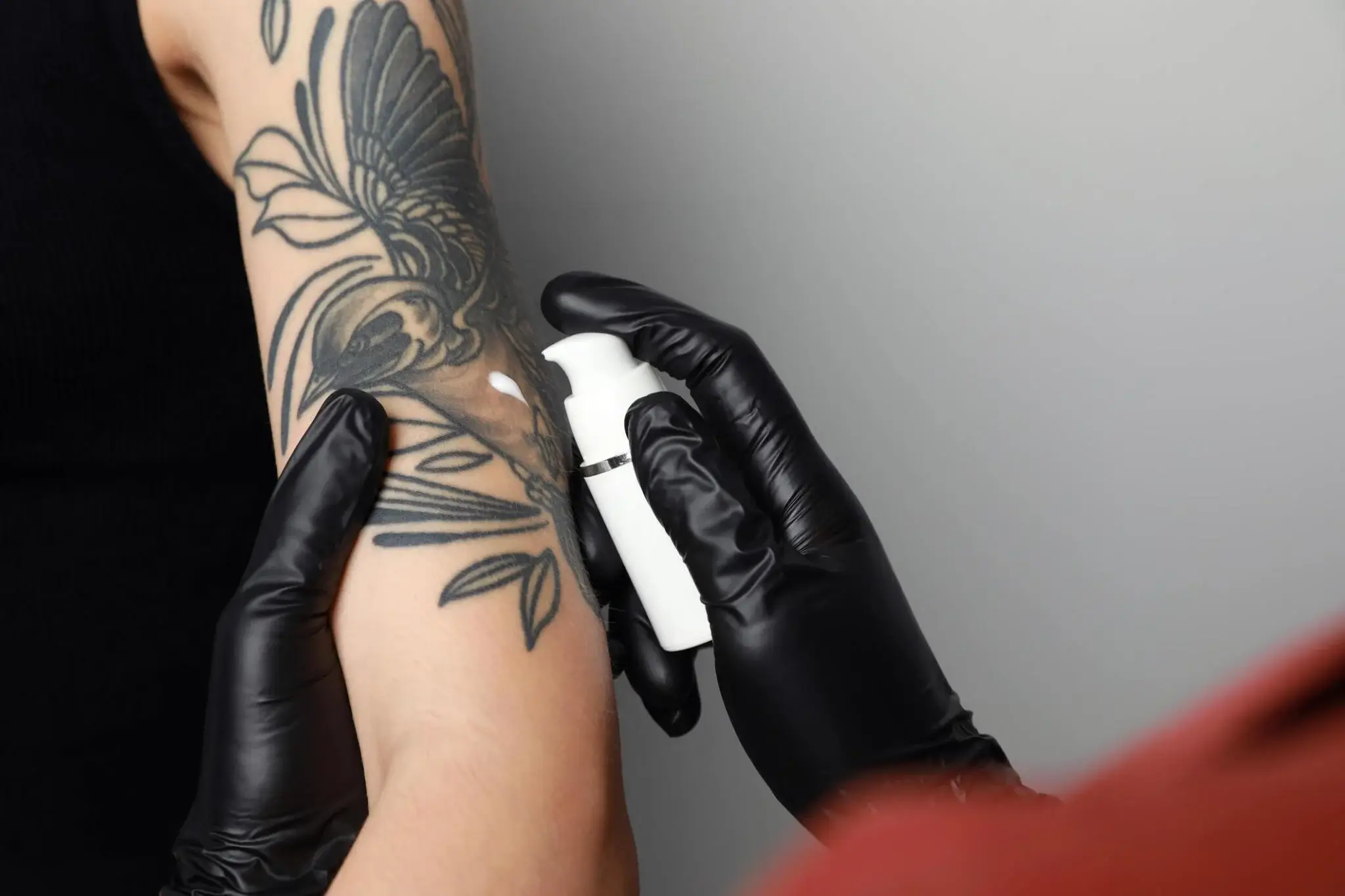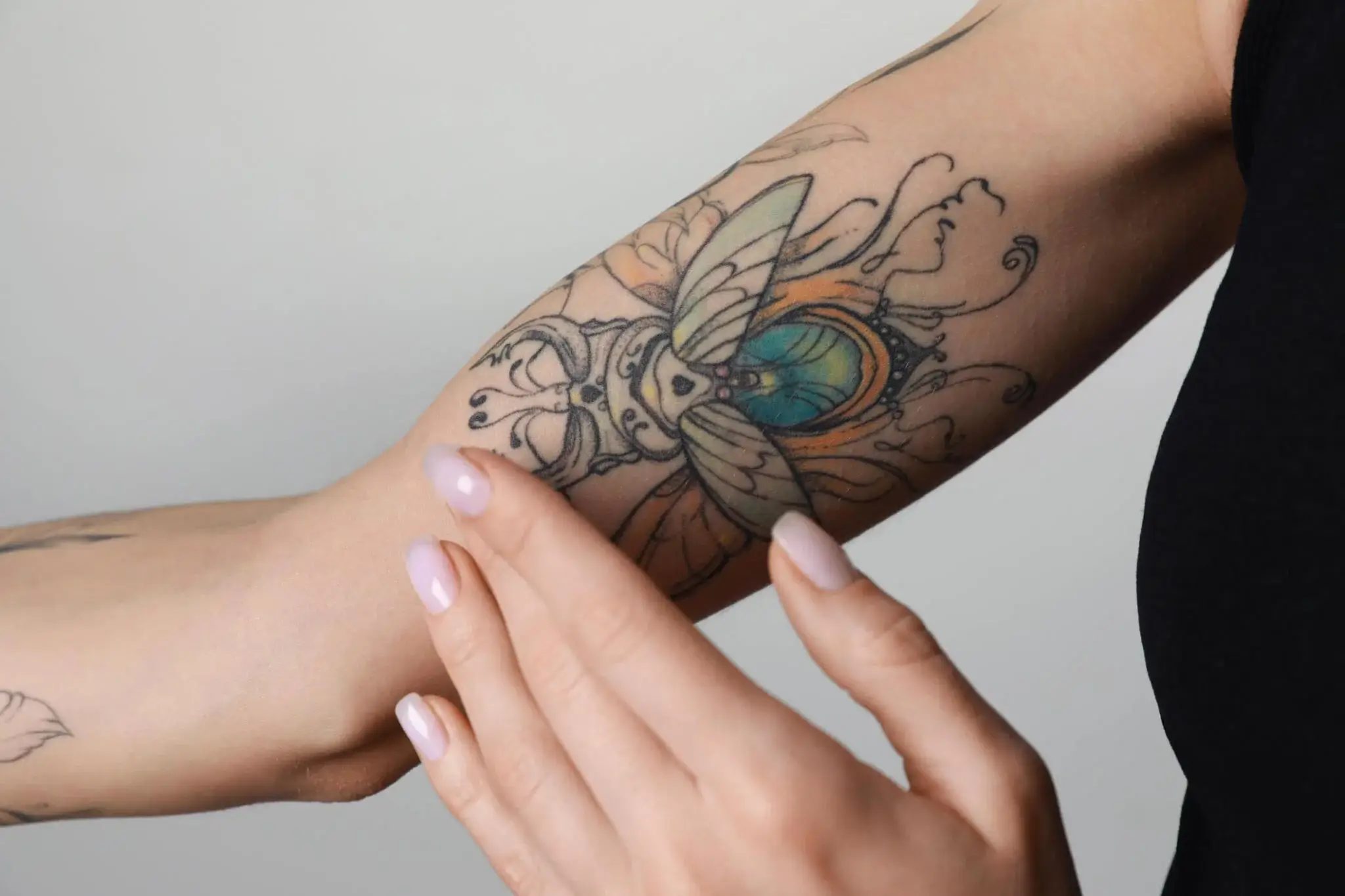For tattoo lovers, there is no better feeling than getting a fresh new tattoo. When I say that, it’s my responsibility to tell you both the bad and the good aspects of this. There is no doubt, that new tattoos will be painful and uncomfortable at first. Normal skin isn’t affected by this, but those people who come with sensitive skin can sometimes experience not being good and it has its side effects.
Does sensitive skin mean people should avoid tattoos? The answer is no. Follow tattoo aftercare steps. Your sensitive-skinned types will appreciate these helpful tips and tricks for enduring ink.
Skin Sensitivity: What You Should Know
Before getting a new tattoo on your skin it is necessary to understand what type of skin you have. I have worked with a lot of people and listened to their stories and most of them have failed to fix this factor. In a few of the cases, you can get this result if you do not follow proper tattoo aftercare guidelines, which can damage a great piece of art.
Normally, you need to consider how much time it takes to cause skin irritation. You know that soreness or redness on the skin is one of the first symptoms of many skin irritations. It is also important to note that too much flaking and peeling of the skin may be an indication of sensitivity. If you feel too much flaking and peeling, then you can easily understand your skin on the sensitive side. You are required to be more careful if you have rosacea and acne signs.
Allergic Skin
In a few of cases, allergies are the result of sensitive skin. On the opposite side, in a lot of cases, a simple micro-exposure test can diagnose allergies-related skin issues. Their goal is to look for a reaction when they expose you to a small amount of a suspected allergen. So be careful and always keep an eye on your skin and notice everything that happens to your skin.
During the Tattooing Process
The basic and important step during the tattooing process is to communicate with your tattoo artist. Especially if you have sensitive skin and share your concerns with your artist. It would be helpful if you allowed the artist to know about any discomfort or uncommon sensations you experience so that their technique can be adjusted accordingly. It is a good option for tattoo ink specially formulated for sensitive skin to reduce negative reactions.

Immediate Tattoo Aftercare Steps
When the tattoo session is complete, proper tattoo aftercare starts instantly. You can softly clean the tattooed part with warm water and fragrance-free soap to remove any blood or extra ink. You can clean the tattooed area dry with a towel. You can use a thin layer of the suggested ointment or moisturizer to keep the skin hydrated and encourage healing.
Recommended Products for Sensitive Skin Tattoo Aftercare
To care for your tattoo aftercare, choose soft cleansers, moisturizers, and ointments that have been designed specifically to be used on sensitive skin. I recommend you avoid these types of products that come with harmful chemicals and fragrance-free products. Because this can enhance allergic reactions and irritation. These types of options are the perfect choice to reduce the risk of negative skin reactions. Aquaphors on tattoos are good for new-inked tattoos.
Best Tips For Proper Sensitive-Skin Tattoo Aftercare
I hope you now understand all the problems. Now comes the important part. There is great news for sensitive skin people, they can still get tattoos on their skin. The only thing that will have to be done is to take better care of their inkwork as it heals, except in the most extreme cases. It should take you 2-3 weeks to get back to normal.

1. Well Hydrated Skin
First, you need to drink a lot of water before the session and during the inking session. Once your body is fully hydrated, then your skin is also hydrated. This will reduce peeling, flaking, and inflammation overall. If you think this is doubtful then don’t worry because we will research it very well on this and then recommend it to you. You can drink more than 2 litres and it impacts positively on the thickness of the skin. The impact is not too big, but this was just a 4-week study.
2. Make Sure The Bandage Isn’t Left On For Too Long
The wrap or bandage should be removed after a couple of hours, according to most artists. Some people are inclined to leave them on much longer just to be on the safe side. For people with harder skin, this is a good option, but not for those with more sensitive skin. You can also remove fake tattoos in your home. These tips also wor for different tattoos lie sleeve tattoos, finger tattoos, collarbone, and Patchwork Tattoos.
The biggest issue is that bacteria and other filthy things can grow 10 times faster in dark areas, and moist, and a secluded atmosphere. That is the main reason normally ventilated areas see more mold and fungus. It might be best for you to remove that bandage right away. Due to the lack of covering to fulfill it throughout the first day you need to clean it often. Clothing that is loose is an excellent idea in these circumstances since the surfaces of woven clothing can also harbor bacteria and other microorganisms.
3. Apply A tattoo moisturizer
Sterile moisturizing products are available in several different forms. A moisturizer used for tattooing mustn’t contain anything that could contaminate a newly opened wound. Hence, you cannot just use anything you have. You should look for moisturizers that contain fatty alcohols (the most common is cetearyl alcohol). A good product for this purpose should be recommended by your artist.
4. Follow-Up Care and Touch-Ups
If you feel your tattoo is completely healed then schedule follow-up appointments with your artist. To estimate the final result you need to fix any touch-ups or adjustments. For sensitive skin, touch-ups are common, especially for these types of people. Because healing can make an impact on the appearance of the tattoo. Your artist should be aware of any concerns or concerns you might have about your satisfaction. Don’t use vaseline on new tattoo.
5. Don’t Go Swimming!
I highly recommend you don’t swim until your tattoo has completely healed. You know that the public swimming pool is not good for new tattoos because it is full of germs and bacteria. It is not a big issue if you do not have an open wound. Even a personal pool in your backyard home would not be fully sterile. It’s fine to take a shower, but keep it brief and use only warm water.
6. Don’t Scratch The Tattoo
The scabs won’t go away by picking at them, as your mother has probably told you. If you feel a specific amount of scab in your tattooed area, it is common. Don’t worry, it is common for every newly tattooed person. But if by mistake you are trying to scratch those scabs, then maybe you pulled out some tattooed ink on your skin as well. Over time, the little scabs will heal under the skin and fall off as the skin dries. You know, if you are a sensitive skin person then you will be tempted to dig in and scratch. However, you need to resist this and avoid long healing times and skin inflammation.
How Long Does It Take For A Tattoo To Heal On Sensitive Skin?
The duration of tattoo healing will depend on different factors including the location and size of the tattoo on the body, along with skin health and type. For new tattoos, healing time on average is around 2-4 weeks to heal completely. But for sensitive skin, it may take a longer time for you. So don’t worry if you follow properly maybe it will heal faster.
Can I Use Regular Skincare Products On My Tattooed Skin?
It is great to avoid using regular skincare products on new tattooed skin. This is especially true for sensitive skin. If you want to reduce the risk of irritation and negative reactions. You can also pick soft cleansers, moisturizers, and ointments designed especially for tattoo aftercare.
Final Thoughts
Normally, sensitive-skinned people will need to care more for their new tattoos as compared to others. The unit will need to be cleaned and cared for more frequently, but it won’t take a lot of effort. You need to follow the tips and tricks outlined in this guide as this guide helps you minimize the risk of complex and negative reactions while ensuring perfect healing and longevity. Don’t forget to prioritize cleanliness, discuss with your artist, and softly care for your sensitive sin to have fun with your tattoo for years.

50 thoughts on “Tattoo Aftercare: Tips and Tricks for People With Sensitive Skin”